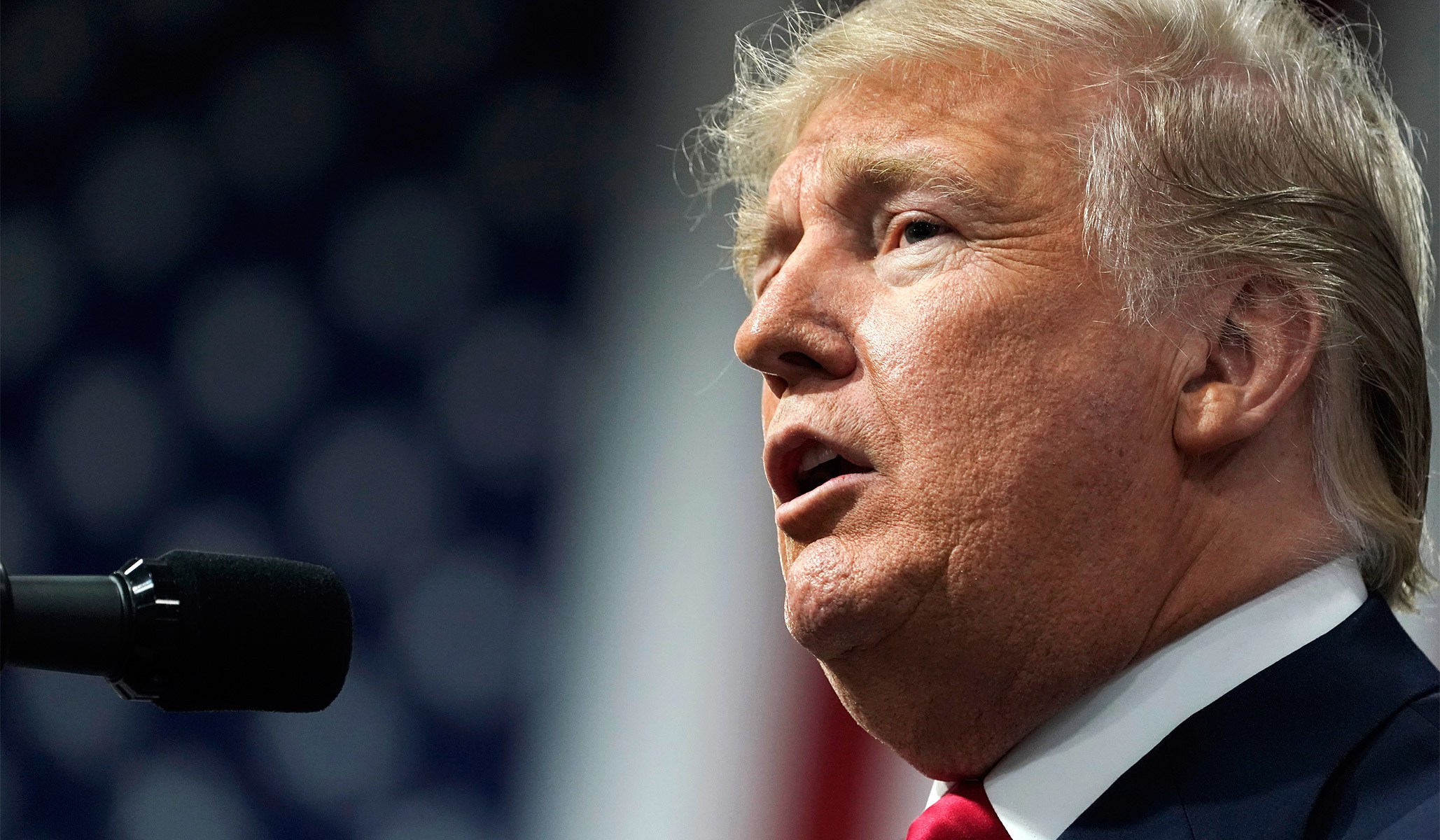By: Andrew C. McCarthy – nationalreview.com – April 26, 2018
Too many Trump critics have abandoned all pretense of respecting due process.
The absurd ruling by District Judge John Bates in the DACA case — which means that what is lawlessly imposed by executive order may not be lawfully rescinded by executive order — reminds us that justice is being politicized plenty from the bench. No surprise, then, that the pols and pundits are getting in on the act.
Byron York’s Washington Examiner column takes up the question of whether, where Donald Trump is concerned, the “generally accepted standard of justice has been turned on its head.” The matter at issue is the so-called Steele dossier, the Clinton-campaign-sponsored compilation of opposition-research memos that the author, former British spy Christopher Steele, masqueraded as intelligence reports. Byron collects commentary from left-leaning political, academic, and media doyens, all arguing that the dossier’s sensational allegations carry a degree of credibility because, though unverified, they have not been proven untrue.
We’ll come to the law in a moment. First, it’s worth observing how even the facts are corrupted by political narrative. The dossier did not drop out of the sky five minutes ago. Many media outlets had it long before it was finally published 17 months ago, refusing to run with it because they well knew that doing so would be irresponsible. The FBI has had Steele’s reports for nearly two years. As former deputy director Andrew McCabe told the House Intelligence Committee, the bureau made elaborate efforts to corroborate it. What’s more, the FBI and Justice Department have come in for fierce criticism for failing to verify dossier allegations that were included in the surveillance applications to the Foreign Intelligence Surveillance Court (FISA Court). They have great incentive to show corroboration if it exists, but they haven’t.
The provenance of the document (about which the FISA Court was kept in the dark) strongly counsel against crediting its assertions. It is partisan opposition research generated for the purposes of a heated, acrimonious election campaign. Its allegations were leaked to the media for partisan purposes, and journalists, notwithstanding their unabashed anti-Trump biases, have not been able to corroborate it, either. We know that Steele, who is banned from entering Russia, relied on third- and fourth-hand hearsay from Russian sources who, for the most part, have not even been identified. And (as I’ve recounted here), Steele himself does not stand behind what he has written. In court proceedings, he has taken the position that the dossier is a collection of bits of “raw intelligence” that are “unverified” and “warranted further investigation” before anyone should have publicized or relied on them.
So the proponent of uncorroborated assertions, upon being sued for libel, has not just declined to defend them but has undercut their reliability. How could fair-minded people, then, repeat these allegations as if they had standing?
The president’s opposition has clearly decided there is no duty to be fair-minded in matters Trumpian. When I ask about this, there’s not so much a defense as a deflection: Well, is Trump’s commentary fair-minded? No, it’s often wrong and way over the top. But I’m not making Trump’s behavior the standard by which I measure mine, so it’s odd to me that people who detest him do so.
In any event, it is urged that our standard in courts of law is “innocent until proven guilty.” Only partly true. That standard is actually the presumption that applies in criminal trials, where guilt must be established beyond a reasonable doubt. We have lower burdens of proof for civil cases (preponderance of the evidence). And for other aspects of criminal proceedings — to get an indictment or a warrant to arrest, search, or eavesdrop — prosecutors must show probable cause. It is undeniable, though, that there is supposed to be some demonstration of confidence that the information is true before we rely on it. The dossier does not meet that test.
Interestingly, there is an ambit more welcoming of rank hearsay: intelligence-gathering and analysis. Intelligence officers deal in probabilities, not proof, so as long as they appropriately weigh the biases and lack of verification attendant to information, they need not dismiss it out of hand. But there is a caveat: Intelligence matters are classified. A big part of why we do not police intelligence-gathering the way we do criminal proceedings is that the information is never supposed to become public, never supposed to be a source of embarrassment to the people implicated.
Intelligence is a national-security exercise, not a rendering of justice. As we have frequently stressed in pointing out that the FBI’s Russia investigation is a counterintelligence probe, not a criminal investigation, the point is to divine the intention of foreign powers that could threaten American interests. We do not owe hostile foreign governments a presumption of innocence — indeed, we could not protect the country if we extended one.
In national-security matters, if there is a threat, it is sensible to proceed with a “guilty until proven innocent” mindset because threats emanating from foreign places where our law does not apply and our investigative agencies do not operate will frequently not be amenable to courtroom standards of evidence. But the trade-off is that we know we could be wrong in a way that could slander people, so we keep the information under lock and key. If we took any other approach, if we required even a moderately demanding standard of proof before information could be considered, we could miss information that helps save lives.
Note, however, that there is an important exception to this, too.
To see the remainder of this article, click read more.
Source: Guilty Until Proven Innocent Is New Standard. Because Trump.
 Listen Online
Listen Online Watch Online
Watch Online Find a Station in Your Area
Find a Station in Your Area









 Listen Now
Listen Now Watch Online
Watch Online
